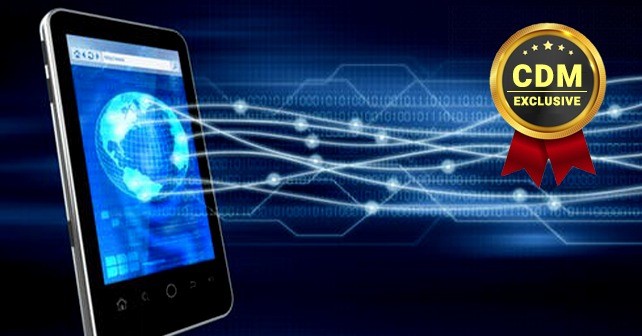By Mika Javanainen, Senior Director of Product Management, M-Files Corporation
Thousands of employees around the world are inadvertently putting their organizations at risk by using personal file-sharing apps such as Dropbox to store and share company information.
As the unsanctioned use of personal file-sharing services increases in the business environment, so too does the risk of information security breaches and data loss.
A recent report from cloud security firm SkyHigh Networks found that 18% of all files uploaded to file sharing and collaboration services contain confidential or sensitive information.
With so much critical information on the move, businesses need the ability to quickly see who is assessing what and when – and take steps to prevent risky file-sharing behaviors.
Protecting sensitive information from unauthorized access and use starts with well-defined policies. If employees are using their personal file-sharing apps at work, policies must be developed and enforced that dictate how these solutions can be used and for what kinds of content.
However, even companies that have such policies still have difficultly preventing unauthorized file sharing because it is too difficult to track. And not everyone knows or follows the rules.
Organizations cannot simply rely on the honor system – they need tools that allow them to enforce information security policies.
The root of the problem
The proliferation of unsanctioned file-sharing app usage at work points to unmet needs. Today’s increasingly mobile, the fast-paced work environment is changing the way workers access documents and other information on the job.
They demand anytime, anywhere access to information in order to collaborate and be productive. What’s more, they want the tools at work to provide the same user experiences they have with the modern consumer apps they use in their personal lives.
Unfortunately, too few companies have enabled their workforces with enterprise software applications that meet those expectations.
This reality is likely a key driving force behind unsanctioned employee use of personal file sharing and sync solutions.
With or without approval from IT or their managers, employees will find and use tools that make their jobs and lives easier.
Collaboration and content sharing is a good thing – except when it puts company information at risk. And that can happen when employees use unauthorized, unsupported and unmonitored personal file-sharing apps.
File sharing and sync solution providers acknowledge these challenges, and as a result, these applications have become more sophisticated with every update and new release.
However, the security and access controls offered by file-sharing platforms still fall short in most cases, especially when so many employees are using free consumer-grade versions in an enterprise environment.
Another issue is that file sharing and sync platforms often proliferate multiple copies and different versions of files.
Furthermore, when an employee uses their personal file-sharing platform at work, they essentially create a new information silo since it is not integrated with their organization’s existing systems and platforms for managing documents and files.
When content resides within multiple and disconnected platforms, applications and locations, not only are employees challenged to find the information they need to perform their jobs, but compliance and security risks are also elevated.
This may lead to providing outdated specifications to subcontractors if the latest version is in someone’s personal file sharing app — and colleagues do not know about it.
Also, determining who owns the data that was produced at the employer’s expense but stored in employees personal storage becomes a tricky question.
Eliminate data silos with ECM
A good way of addressing the challenge of unauthorized use of file-sharing solutions is by leveraging an enterprise content management (ECM) solution.
Modern ECM systems provide an approach that can be as easy to use for storing and sharing content with a multitude of devices, but also provides the necessary levels of control and security.
Modern ECM solutions not only provide quick and easy file sharing and sync capabilities as popular consumer platforms, but there are also other benefits as well.
An ECM platform can deliver faster and more intuitive searching capabilities that can be extended with integrations to nearly all business content residing within core business systems and repositories.
Another benefit of an ECM platform: built-in version control and workflow capabilities ensure that employees have easy access to up-to-date information when they need it.
Employees don’t have to waste time searching for and reconciling multiple files and versions. What’s more, these systems also provide audit trails and granular, metadata-driven access controls that can help IT admins know who accessed what and when – and even block user accounts, if needed.
ECM platforms can also be integrated with common identity providers, such as Active Directory or Google Accounts.
Users get a convenient single sign-on experience and do not have to memorize a new user name and password to yet another system.
Furthermore, IT departments can centrally enforce password policies, security groups, multi-factor authentication, and account lockout policies.
Companies today face diverse challenges and they must always be open to new ways to become more efficient while balancing security considerations.
Given how droves of people continue to sign up for file-sharing sites, it’s clear that organizations need a better, more proactive strategy for sharing information.
Modern ECM solutions can provide an easy, effective solution that balances flexible access with greatly improved content security to simultaneously satisfy employees and ensure business content is strictly controlled and protected.
About the Author
 Mika Javanainen is Senior Director of Product Management at M-Files Corporation. Javanainen is in charge of managing and developing M-Files product portfolio, roadmaps and pricing globally.
Mika Javanainen is Senior Director of Product Management at M-Files Corporation. Javanainen is in charge of managing and developing M-Files product portfolio, roadmaps and pricing globally.
Prior to his executive roles, Javanainen worked as a systems specialist, where he integrated document management systems with ERP and CRM applications.
A published author, Javanainen has an executive MBA in International Business and Marketing. Follow Mika on Twitter at @mikajava and at the M-Files web site: https://www.m-files.com


